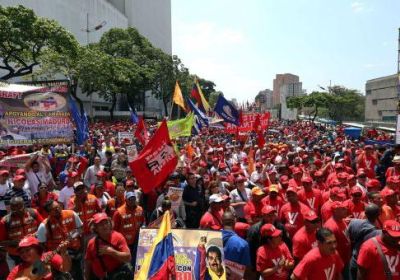
-
 Thousands of Venezuelans took part in May Day rallies on May 1 to mark the international workers' day and commemorate the achievements of the country's pro-poor Bolivarian revolution. Speaking to May Day celebrations in Caracas, Venezuelan President Nicolas Maduro said: “Now is time for workers to lead the economic policy of the country.”
Thousands of Venezuelans took part in May Day rallies on May 1 to mark the international workers' day and commemorate the achievements of the country's pro-poor Bolivarian revolution. Speaking to May Day celebrations in Caracas, Venezuelan President Nicolas Maduro said: “Now is time for workers to lead the economic policy of the country.” -

Three British oil companies are violating Argentine law by carrying out exploration efforts without permission from the state, Argentina says. Argentine Minister of Malvinas said on April 17 that an Argentine judge will soon open the prosecution against three British-based oil companies conducting exploratory activities in the Malvinas Islands, and possibly two others from the US. The Argentine government has stated that foreign companies are violating Argentine law by carrying out exploration efforts without permission from the state.
-
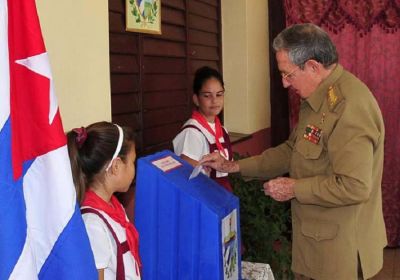
More than 7.7 million Cubans out of 8 million registered voters cast their ballots on April 19 to elect nearly 12,600 delegates out of about 27,000 candidates to the country’s Municipal Assemblies, TeleSUR English said the next day.
-
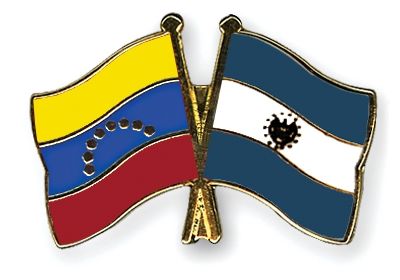
The United States is threatening the small Central American country of El Salvador with financial repercussions for supporting Venezuela's campaign for the repeal of US sanctions against the country. The left-wing Farabundo Marti National Liberation Front (FMLN) government of Salvador Sanchez Ceren, together with all of countries of Latin America and the Caribbean, has called on US President Barack Obama to repeal his executive order declaring Venezuela to be a “threat” to US national security.
-
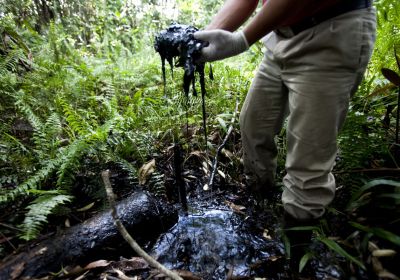
Oil giant Chevron Corp is fighting to avoid paying compensation awarded to about 30,000 Ecuadorean citizens severely affected by the dumping of billions of gallons of toxic waste in the Amazon.
-
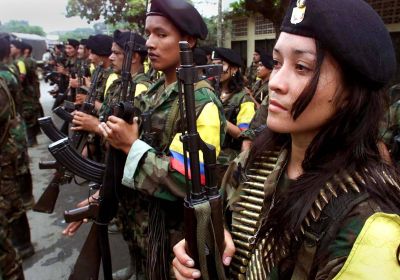
The Revolutionary Armed Forces of Colombia (FARC) will continue its unilateral cease-fire, as long as the Colombian armed forces suspends all military operations against it, TeleSUR English said on April 20. FARC representatives made the commitment at peace talks in Havana with the Colombian state, which aim to end the decades-long civil war that has wracked the South American nation.
-
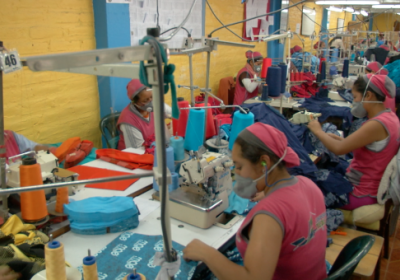
The revolutionary “The Law for Labour Justice and Recognition of Work from Home,” was passed by Ecuador's National Assembly on April 14, TeleSUR English reported on April 15. The law, which was first proposed by President Rafael Correa on November 15 to about 100,000 workers, passed by 91 votes to 29. The law will extend the benefits of the social security system to all Ecuadoreans wishing to be affiliated.
-
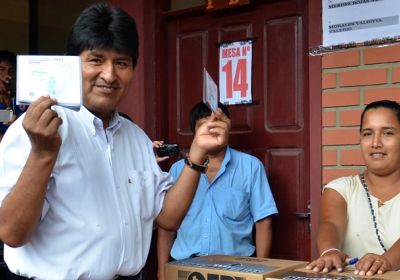 Up to 90% of the electorate voted in Bolivia’s “local” elections on March 29 for governors, mayors and departmental assembly and municipal council members throughout the country. The governing Movement for Socialism (MAS) of left-wing President Evo Morales once again emerged as the only party with national representation. It is by far the major political force in Bolivia, and far ahead of the opposition parties, none of which has a significant presence in all nine departments.
Up to 90% of the electorate voted in Bolivia’s “local” elections on March 29 for governors, mayors and departmental assembly and municipal council members throughout the country. The governing Movement for Socialism (MAS) of left-wing President Evo Morales once again emerged as the only party with national representation. It is by far the major political force in Bolivia, and far ahead of the opposition parties, none of which has a significant presence in all nine departments. -
 President Nicolas Maduro of Venezuela began his visit to Panama City for the Summit of the Americas with a visit to the impoverished neighbourhood of El Chorrillo to lay a wreath at the monument to those killed by the US bombing of the community during the 1989 US invasion of Panama.
The seventh Summit of the Americas, held in Panama City on April 10 and 11, was widely hailed as a victory for left-leaning and progressive forces in the region, particularly Venezuela and Cuba.
President Nicolas Maduro of Venezuela began his visit to Panama City for the Summit of the Americas with a visit to the impoverished neighbourhood of El Chorrillo to lay a wreath at the monument to those killed by the US bombing of the community during the 1989 US invasion of Panama.
The seventh Summit of the Americas, held in Panama City on April 10 and 11, was widely hailed as a victory for left-leaning and progressive forces in the region, particularly Venezuela and Cuba.
-
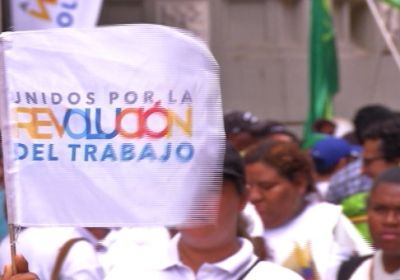 Ecuador has lifted 1.3 million people out of poverty in the past eight years, a new survey revealed on April 13, TeleSUR English said that day. The results of the first “Survey of Living Conditions in Ecuador” showed that poverty has fallen by one third. It also revealed that 900,000 individuals have been lifted out of extreme poverty, whilst the Gini coefficient, which measures wealth gaps, has dropped 4.8 points since 2006.
Ecuador has lifted 1.3 million people out of poverty in the past eight years, a new survey revealed on April 13, TeleSUR English said that day. The results of the first “Survey of Living Conditions in Ecuador” showed that poverty has fallen by one third. It also revealed that 900,000 individuals have been lifted out of extreme poverty, whilst the Gini coefficient, which measures wealth gaps, has dropped 4.8 points since 2006. -
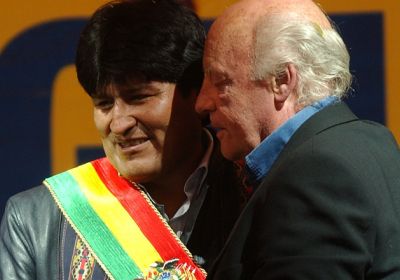
Internationally awarded Uruguayan author and journalist Eduardo Galeano died on April 13 of lung cancer at age 75 in Montevideo, the capital of Uruguay.
-
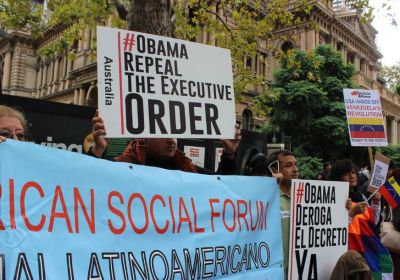 US President Barack Obama admitted on April 9 that Venezuela “does not pose a threat” to the United States. “We do not believe that Venezuela poses a threat to the United States, nor does the United States threaten the Venezuelan government,” Obama said during an interview with EFE. Last month, Obama signed an executive order declaring Venezuela an “unusual and extraordinary threat to the national security and foreign policy of the United States.”
US President Barack Obama admitted on April 9 that Venezuela “does not pose a threat” to the United States. “We do not believe that Venezuela poses a threat to the United States, nor does the United States threaten the Venezuelan government,” Obama said during an interview with EFE. Last month, Obama signed an executive order declaring Venezuela an “unusual and extraordinary threat to the national security and foreign policy of the United States.”